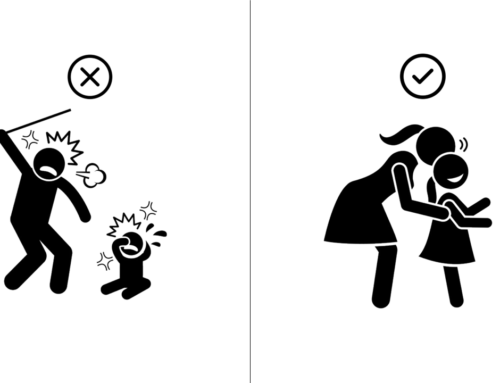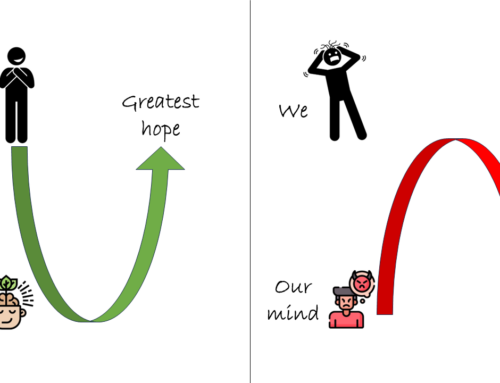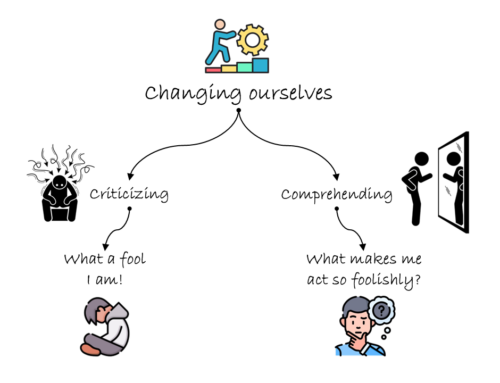“Why did I do that?” This question often troubles us whenever we look back at an unworthy action that we did on the spur of the moment. Seeking an honest answer leads us to an unpleasant conclusion: my greatest enemy is me.
The question, then, begs itself: who will save me from me?
The Bhagavad-gita (06.05) answers, “Me.” The literal translation of this enigmatic verse reads: “Elevate the self with the self; do not degrade the self with the self. The self is the friend of the self and the self is also the enemy of the self.”
To make sense of this verse, we need to understand the dual sense of the word “self.” This dual sense arises from the fact that we are spiritual beings trapped in material bodies. Our spiritual side, our real self, prompts us to seek devotional fulfillment, whereas our material side, our illusory self, pushes us to seek worldly enjoyment. For all practical purposes, the illusory self can be equated with the mind, as the translations by most prominent Gita commentators substantiate.
With either translation, the essential question remains: how can we save ourselves? To understand the answer, let’s consider a metaphor.
Our situation is like that of a boat on an ocean. For the boat to stay steady amidst the wavy and stormy ocean, it needs to be coupled to something steadier than itself: an anchor. Similarly, if we wish to stay steady amidst the materialistic storms that shake us through provocative situations and passions, we need to couple with something steadier than ourselves: the ultimate spiritual anchor, Krishna, who is the soul of the soul, the Supreme Self.
Therefore, the complete answer to the question, “Who can save me from me?” is: “Me, by coupling with Krishna.”
Bhagavad Gita Chapter 06 Text 05
“One must deliver himself with the help of his mind, and not degrade himself. The mind is the friend of the conditioned soul, and his enemy as well.”




Leave A Comment